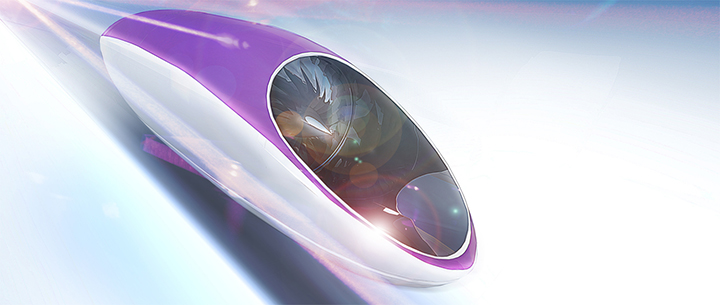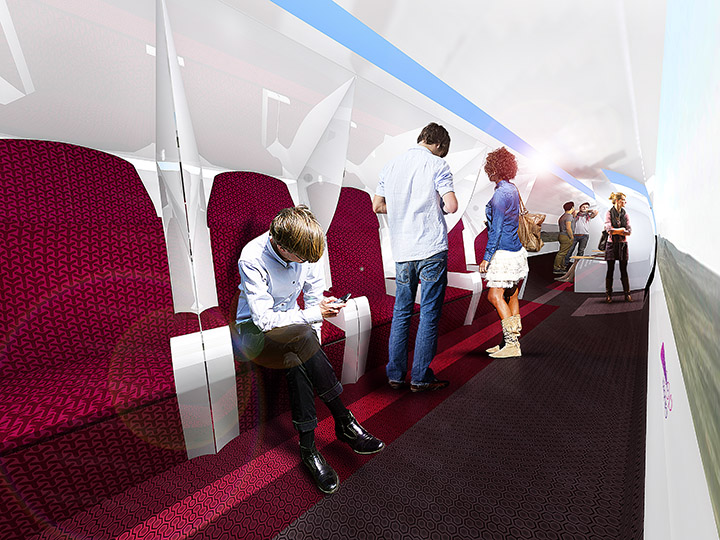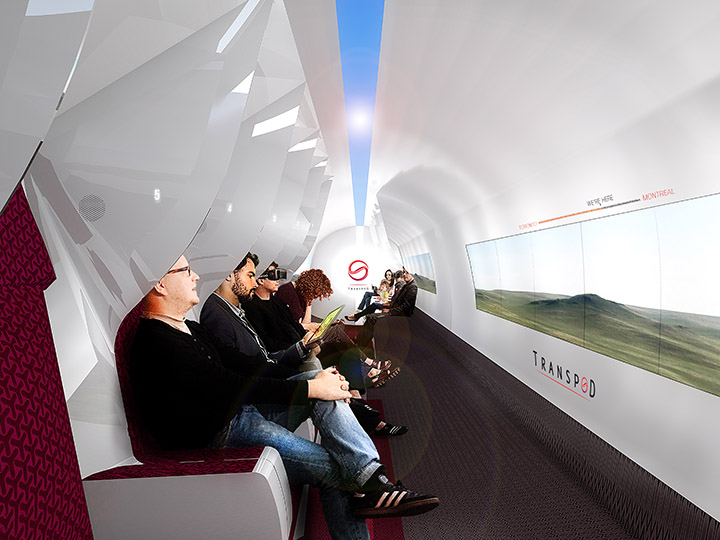Imagine if you could travel between Toronto and Montreal in around 45 minutes? A Toronto-based transportation start-up company hopes to use Hyperloop technology to make the prospect a reality, but it won’t come cheap.

“We have either the choice to stay where we are and do nothing – and stay behind – or take the lead, and we have the ability in Canada to do it,” TransPod Inc. founder and CEO Sebastien Gendron told Global News Sunday. He is currently in Berlin, Germany where he is presenting the concept to the transportation industry and potential investors at the InnoTrans conference.
Gendron is proposing to link the two major Canadian cities through what he calls a mix between an airplane and a train. The technology involves putting train coach-sized pods inside a pipeline structure close to the ground and remove the air from the system.
READ MORE: Hyperloop 1 shows off super-speed propulsion technology
“You have that vehicle in a vacuum tube and as you have no air, it’s kind of being closer to space. You have no friction, and this is how you can achieve such a speed,” Gendron said, adding his firm is conducting further research into pressurizing the entire structure and the different technologies to move the pods, such as using electric engines and magnetic propulsion drives.
In terms of the system’s safety aspects, Gendron said the company would utilize the same regulatory certification process imposed on the aviation industry and have back-up redundancies. The pods would be able to move to the closest emergency exit if the vehicles lost power.
He said the pods would need to be controlled by a computer system instead of conductors.
“The human brain doesn’t have enough speed to react on time, so it needs to be computer controlled,” Gendron said.
He said the goal is to have 50 pods in the system at one time with different configurations for the vehicles. An economic class vehicle would carry 20 to 30 people while a business class pod would carry 10. He said the system could move 1,000 passengers an hour in each direction. Gendron said cargo could possibly be moved in the system.
The proposed top speed of the vehicles could reach 1,200 km/h, which means it could theoretically take under 30 minutes to travel between Toronto and Montreal. However, Gendron said it would likely be closer to 45 minutes once you factor in acceleration and deceleration. He also said the company is considering adding a stop in Kingston or Ottawa if there’s a proven economic demand.

Get breaking National news
READ MORE: MIT wins design competition for Elon Musk’s Hyperloop
But how much time could TransPod potentially save during a trip compared to other public transportation options?
According to online schedules, it takes around five hours to make the trip to Montreal’s Central Station from Toronto’s Union Station by train. Meanwhile, a flight to Montréal–Pierre Elliott Trudeau International Airport from Billy Bishop Toronto City Airport takes just under an hour and 15 minutes.
As TransPod continues to develop the concept and do the necessary research, the system has a hefty price tag. Gendron said the total cost of the system would be around $8 to 10 billion. He said it will cost at least $1.5 billion for every 100 kilometres of the pipeline system.
READ MORE: SpaceX to hold design competition for Hyperloop pods
The stations in Toronto or Montreal would cost a minimum of $500 million if the facilities are in the suburbs. The cost would increase as the stations move closer to the cities’ downtowns.
TransPod will close the first round of funding at the end of the year. Gendron said the company is looking to raise $30 to 40 million to pull together the necessary research and development staff to advance the project.
So as Gendron and TransPod staff work on this potential system, what does he tell those who might doubt the concept?
READ MORE: Elon Musk’s high-speed ‘Hyperloop’ train one step closer to reality
“It’s good to have skepticism. It’s making us progress and address the right questions … it’s really time to reinvent something and to propose something,” Gendron said.
“Change is the only constant in life. For those who only look at the present and the past are sure to miss the future, so you need to innovate all the time.”











Comments